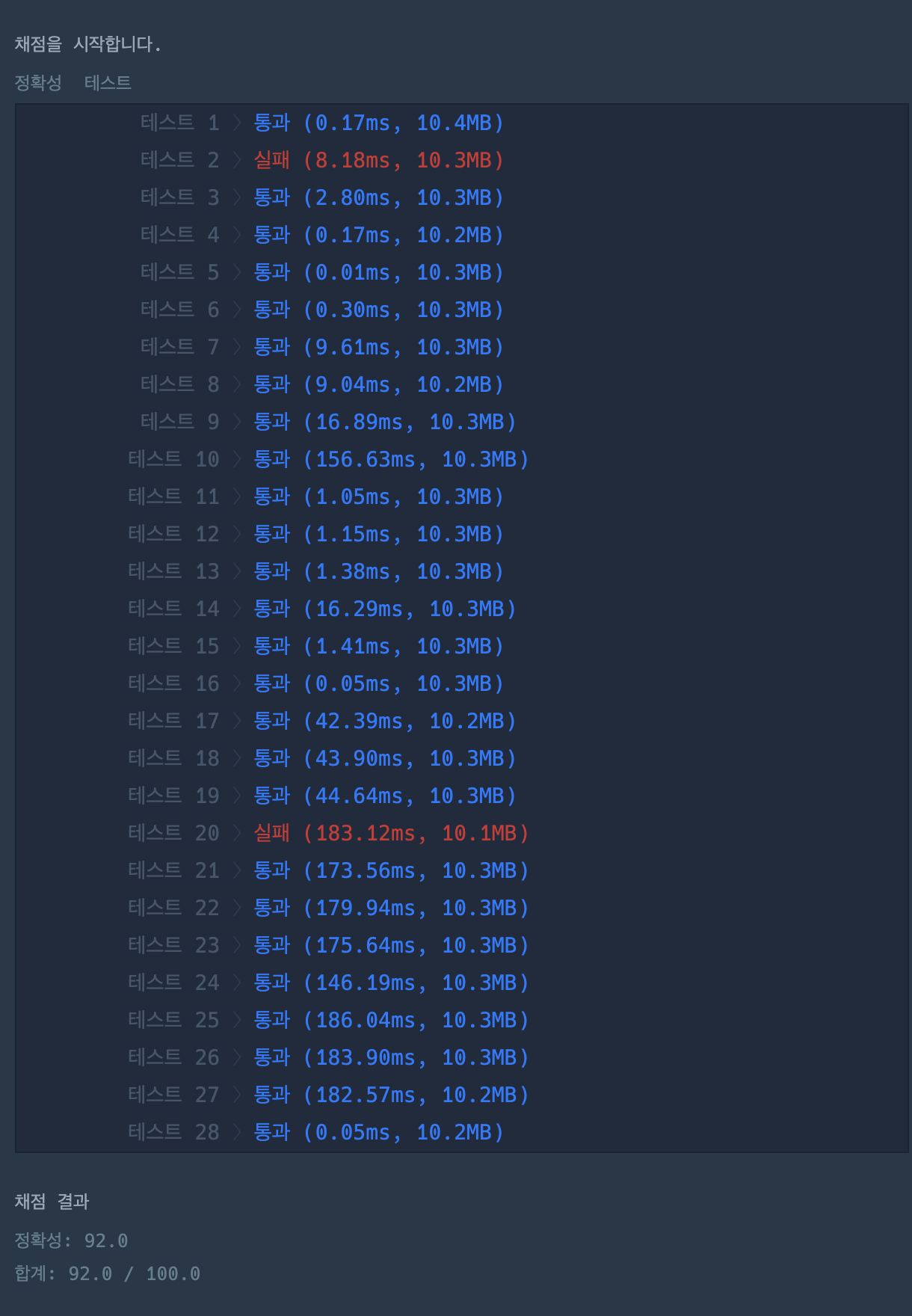def compress(s, l):
i = 0
words = []
while i < len(s):
j = 0
tmp = ""
while j < l and i < len(s):
tmp += s[i]
j += 1
i += 1
words.append(tmp)
i = 0
cnt = 0
while i < len(words):
j = i + 1
while j < len(words):
if words[i] == words[j]:
j += 1
else:
break ;
tmp = j - i - 1
if tmp >= 1 and tmp < 10:
cnt = cnt + 1 + len(words[i])
elif tmp >= 10 and tmp < 100:
cnt = cnt + 2 + len(words[i])
elif tmp >= 100 and tmp < 1000:
cnt = cnt + 3 + len(words[i])
else:
cnt = cnt + len(words[i])
if tmp >= 1:
i = j
else:
i += 1
return cnt
def solution(s):
answer = 0
max_len = len(s)
if max_len == 0:
return 0
answer = 1001
while max_len > 0:
tmp = compress(s, max_len)
if tmp < answer:
answer = tmp
max_len -= 1
return answer

두문제에서 나가리..
내가 생각한 로직은
특정 길이만큼 요소가 나뉘어진 리스트를 만들고
리스트 요소를 돌면서 비교해가며 압축될 문자열의 길이를 구해나가는 것
이때 주의할건 두자릿수 세자릿수의 압축숫자가 나올수있다는것
1~최대길이까지 압축시 길이 값 담는 리스트 만들고 그중 최소값 리턴하는 로직
문자열 쪼갠 리스트 만들때 slicing과 for in range()사용
